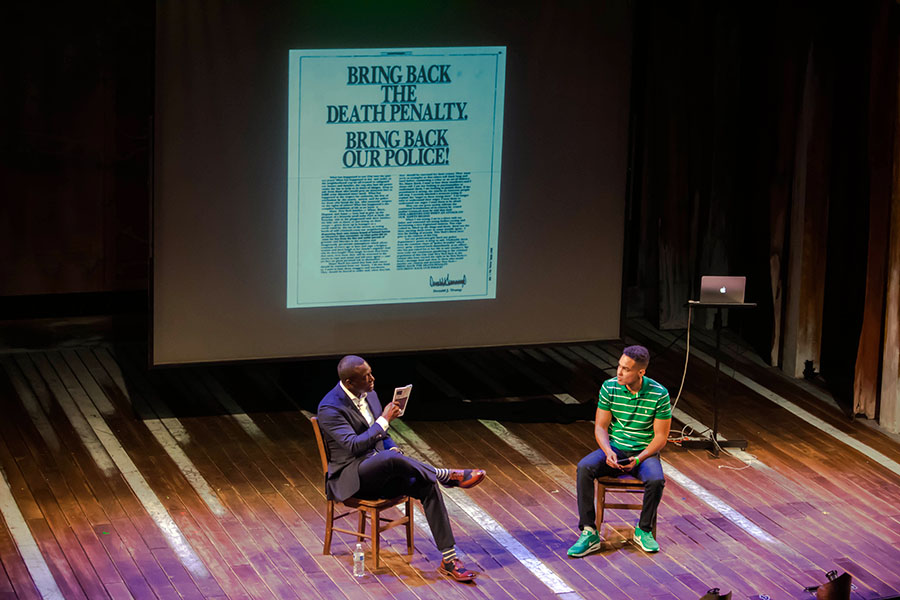Talk Back Series makes debut with hip-hop artist and activist
September 26, 2017
“Talk Back Series” is the Center of Media Innovation’s and Pittsburgh Playhouse’s newest endeavor.
Jasiri X, a Pittsburgh-based hip-hop artist and activist, kicked off the conversation last Tuesday evening in the Rauh Theatre by sharing his experiences fighting for racial equality. Events such as Ferguson bring light to current instances of racially motivated violence occurring across the U.S.
Yusef Salaam joined Jasiri X on stage to speak about his own struggles of growing up as a young black man in a racially torn society, being convicted as a member (of what the media dubbed) the Central Park Five at the age of 15 and spending seven years in prison for a rape and attempted murder he did not commit. The five young men were convicted on false confessions, despite a lack of DNA evidence, and spent between six and 13 years in prison.
The series provided the opportunity for the public to engage in a conversation that has picked up steam across America in recent months – the race issue that continues to divide the country.
“We didn’t get the opportunity to be seen as human beings,” Salaam said on the Rauh stage. “The greatest lesson I learned was that the social and justice system wasn’t treating me like a man – when you find yourself in so-called dark places, there’s always a light somewhere in the darkness, and even if that light is inside of you, you can illuminate your own darkness by shedding that light on the world.”
Salaam, along with the other members of the Central Park Five were robbed of their childhood on April 19, 1989 when they were taken into custody for the rape and attempted murder of Trisha Meili, a 28-year-old white woman jogging through New York City’s Central Park.
Salaam now shares his story of the time he spent as a political prisoner across the country as a form of therapy.
“I can affect the future of this country by talking to young people who want to be lawyers, cops and forensic scientists,” Salaam said. “Now I have wisdom to share with you because I had to go through a test.”
One of those young people is Tyqaun White, a freshman musical theater major.
“In our society today there is a problem with the dehumanization of black people,” White said. “It was scary to see pictures of [Salaam] and his mom, I saw myself in him as a black boy in America.”
Nia Bourne, a freshman musical theater major, was touched by Salaam’s story as well.
“It was absolutely amazing to hear what he had to say as a black person,” Bourne said. “It was both awakening and disappointing that this can happen to anyone – I want to make a difference.”
Andrew Conte, director of the CMI, was excited for this opportunity to talk back.
“You can have a discussion with people you may have only seen in TV or on the internet,” Conte said.
Justin Rivers, another freshman musical theater major, said he is inspired by Salaam’s story and that these instances of racial injustice inspires him in his work.
“This is why I perform,” Rivers said. “I want to take action.”
Jasiri X said that change is absolutely necessary in the face of growing racism across the country, and the alarming frequency of racially motivated violence that is popping up in the news daily.
“We live in a time of what side are you on,” Jasiri X said. “If you aren’t willing to fight this, you are on the wrong side of justice and the wrong side of history.”


















